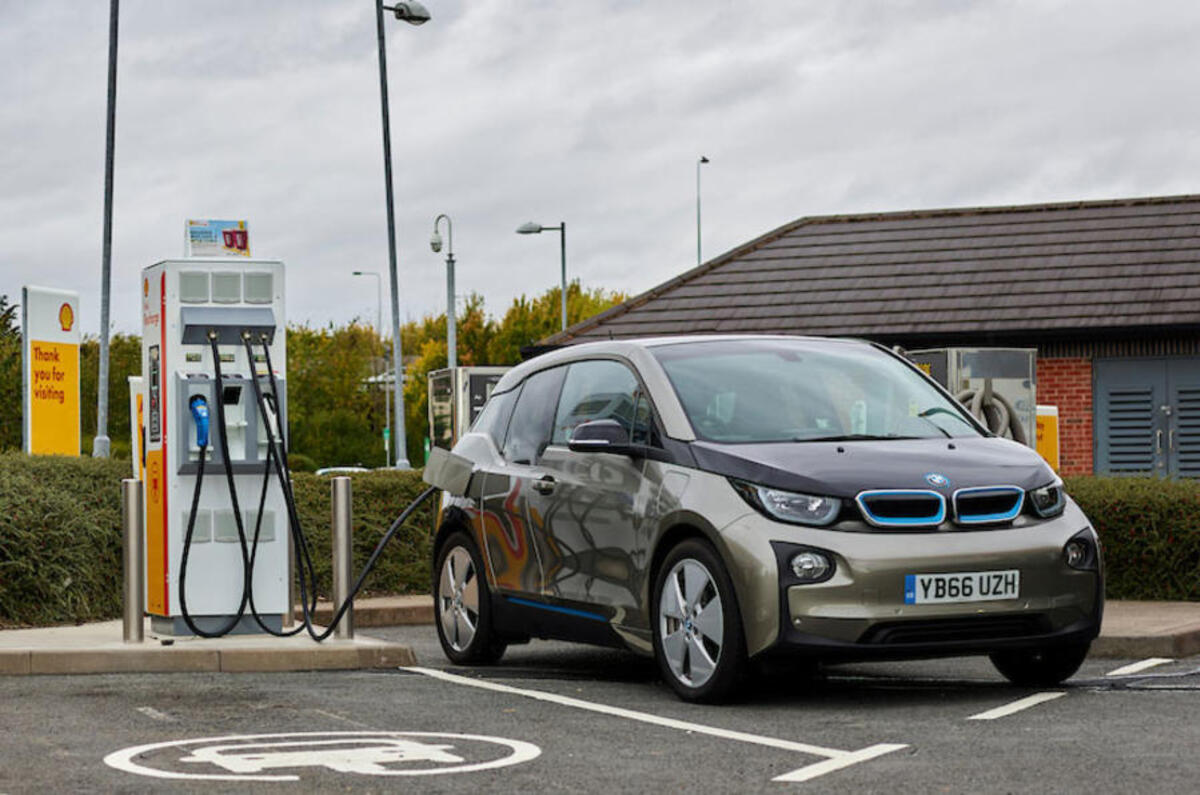The UK’s electric vehicle rapid charging network will be required to have a 99% reliability rate and offer real-time status updates under new laws set to be introduced in the coming months.
The new Public Charge Point regulations, published in draft form, are intended to improve the charging experience for EV owners. Ministers hope the new regulations, which were first announced before a public consultation last year, will eradicate range anxiety and create a “world-class” charging grid.
The new rules set a minimum standard for public charge reliability of 99%, putting an emphasis on firms to ensure that units are durable and capable of constant use. At the same time, all chargers will be required to produce real-time data on their status, offering greater information to potential users.
Charging firms will also be required to increase the availability of contactless payment systems. All new public chargers that are faster than 8kW must offer contactless payments, removing the need for drivers to use a smartphone app. In addition, firms will be required to allow customers to pay via a third-party provider.
Charging firms must also clearly display the cost of using a unit in pence per kilowatt hour either on the charger itself or through a separate device that can be accessed without a contract.
Under the new regulations, charging firms could be fined up to £10,000 for each unit that fails to comply with the requirements.
Ian Johnston, the boss of Osprey Charging and the head of new charge point industry body Charge UK, said the industry "welcomes these regulations". He added: "The public charging industry is committed to making the UK the best place to charge an EV. Consumer confidence in charging infrastructure is vital and we look forward to working with the government to implement these regs over the coming months."
AA president Edmund King said the reliability requirement and live charge information "will help show drivers in real time the benefits of driving electric”.
When the legislation was announced in 2022, the government also confirmed a £1.6 billion investment in 300,000 new charge points across the country, which, the government says, would be five times as many traditional fuel pumps currently in operation. These will be operational by 2030 and spread across the country, it promises.









Join the debate
Add your comment
Imposing a law to make something reliable? Talk about draconian measures.
OK so let's say they continue not to be reliable - what's the penalty, a fine perhaps? No problem, the provider just increases the price of charging to cover the fine.
The real problem here is government legislating that all new cars from 2030 will need to be EV ( or hybrids covering a certain distance which nobody is none the wiser what that means ). The infrastructure isn't in place and the parts of it that are, the gov are now admitting isn't fit for purpose.
It'll be like the SNP's environmental targets for Scottish waters which couldn't be met therefore had to shelf. Some eco champion makes a case without any due dilegence. Oh it sounded great at COP26 and delegates went home happy, but when push comes to shove, it's a non-starter. This 2030 date is pie in the sky - it'll never happen unless the rules change.
How about sorting out the extortionate pricing first?
When I got my electric corsa 2 years ago, BP were 12p a unit (domestic power about 18p then)
They then put it up to 16p 'to invest in the network' (didn't realise it was customers job to subsidise their business).
It's just gone up and up since, it's currently 59p for their cheapest chargers at a time when wholesale electricity prices are around £73/mwh (7p per kWh) - or 70% down on the year. So a markup of something around 700%, and a profit margin of hundreds of percent. And it's even worse from other providers, or the fast BP chargers.
And, of course, the papers and politicians are fretting about a few pence a litre on petrol (that does 10 miles) versus overcharging on electricity of 40p+ a unit (3-4 miles). Can't possibly criticise the saintly electric cars.
And yes, before the e zealots jump in and tell me that they pay 1.3p a unit at home, that's no use to those who can only use public chargers, or actually go more than 20 miles from home).
99% reliability sounds like a soundbite without any robust analysis.
A more realistic target should be determined and the emphasis but on real time data for serviceability